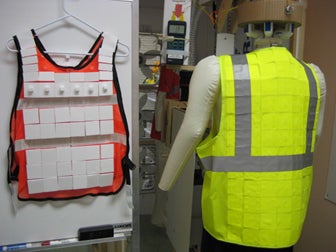
The College of Health Sciences has launched an online interactive laboratory which allows researchers and students worldwide to remotely access the Boise State University Thermal Manikin Laboratory. The Laboratory is located on campus in the Health Sciences Riverside Building. The Thermal Manikin Laboratory provides the capability to evaluate heat exchange properties of clothing systems. An online interactive system allows external control over selected instruments inside the laboratory. The online technology platform was developed by Reach-In of Boise, Idaho, providing a new and novel approach to global interactive learning. Currently, researchers at the University of Zagreb in Croatia and researchers at the Hong Kong University of Technology are working with Uwe Reischl, PhD, a professor in the Department of Community and Environmental Health, in conducting clothing research by using the Boise State laboratory. Also accessing the laboratory are researchers in the Division of Textiles and Clothing at the University of California – Davis.
“Allowing remotely located researchers to physically interact inside a Boise State University laboratory facility without the encumbrance of travel is an excellent use of our company’s innovation. From expert level R&D to high school chemistry, physics, and biology, the possibilities with this online interactive technology are endless. We are delighted to support Boise State University in taking the Thermal Manikin Laboratory global” says Scott Harris, CEO and founder of Reach-In.
The Boise State Thermal Manikin Laboratory uses controlled heat flow through an inflated manikin to assess clothing heat insulation characteristics. The system measures heat gain and / or heat loss of partial or complete clothing systems. The patented thermal manikin was invented by Reischl in collaboration with colleagues at the School of Public Health at the University of South Florida in Tampa. The mission of the Boise State laboratory is to promote the development of new garment systems in order to improve the occupational health and safety of persons exposed to hot outdoor environments. Along these lines, a patent-pending IR heat radiation attenuation vest was recently developed at Boise State which can reduce a worker’s solar infrared heat radiation exposure by 60 percent without imposing a measurable heat gain. Such developments may ultimately benefit agricultural workers in Idaho and persons employed in other hot regions around the world.